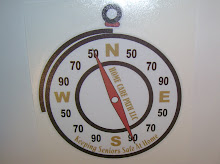An elder presents at the emergency department with illness. The ER staff does an assessment and the elders symptoms fall short of needing a hospital admission. But, the staff is unsure of sending the elder home alone in this condition. As a means to insure the elders safety the hospital staff may arrange to keep the senior over night in the hospital as an outpatient observational status.
The hospital doctor and the staff believe the person can stay over night and the Medicare (public insurance plan) can be billed for the service. The hospital (UR) utilization review committee looks over the notes and agrees the over night stay should be billed to Medicare as an outpatient observational status. The hospital claims department submits the bill to Medicare and it is paid.
Days later Medicare performs an audit and reviews the claim. A certified Medicare benefit review specialist determines the over night stay in the hospital was not needed. Medicare retroactively denies the claim and sends notice to the hospital to refund the previous reimbursement.
The hospital claims department sends notice to the elder that Medicare has refused to pay for their nights stay in the hospital and the consumer is now responsible for paying this bill. The amount billed by the hospital claims department for the room should not exceed the daily rate for a hospital room and board for semi private room which is about 1554.68 dollars per day.
The family can divide the daily rate for room and board 1554.68 by 24 hours, which is 64.77 per hour, to figure the hourly expense. The hourly cost of room and board of 64.77 can be used in comparison to the investment of allowing the elder to go home with supportive care who maintain close contact with the medical team. The hourly cost for supportive care would be 20.00, this is less than one third the cost of staying in the hospital setting.
Clearly facilitating the support to allow the senior to go home with help is the more fiscally responsible option. Home Care Path and the PATH ALONG model communicate this only to inform the community of the way the hospital delivery system currently is operating. This is an undesired variation in the health care system. This helps the community to understand the changes taking place on a health care system level and improves their ability to choose safe strategies to achieve health.
Wisconsin's PATH ALONG model helps seniors during the hospital stay and with outpatient treatment visits. PATH ALONG is a strong arm of Home Care Path (www.homecarepath.com) a community based organization committed to performing a service that supports the changing needs of an aging population. You are cordially invited to download your free PATH ALONG App today, seniors are saying they would not go to the hospital without their PATH ALONG app
http://appsmakerstore.com/appim/j6kcdet8xvwk4s
Monday, April 1, 2013
Subscribe to:
Post Comments (Atom)

No comments:
Post a Comment